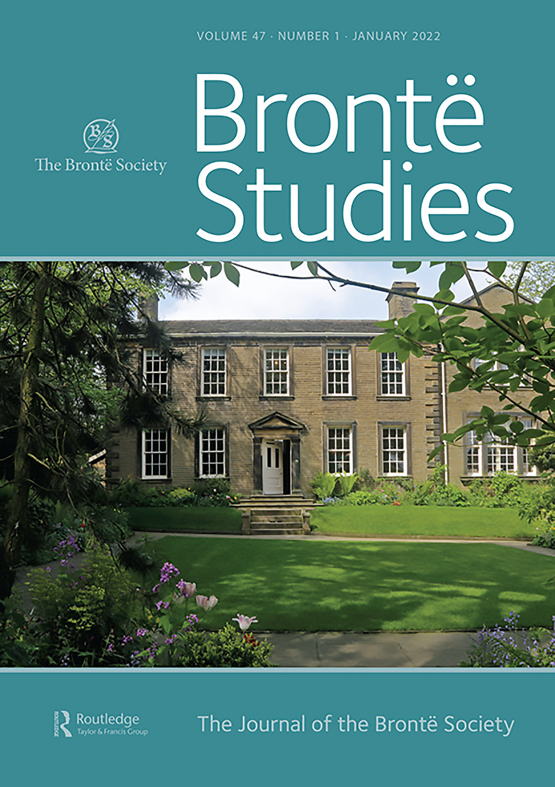Submit a Manuscript to the Journal
Brontë Studies
For a Special Issue on
Re-mapping the Brontës
Manuscript deadline

Special Issue Editor(s)
Professor Melissa Fegan,
University of Chester
brontestudies@bronte.org.uk
Re-mapping the Brontës
Inspired by the Brontë Society’s 2025 conference, '"Under an African summer’s sun": Re-mapping the Brontës: Place, Race and Empire', Brontë Studies, the official journal of the Brontë Society, invites the submission of new and original research articles for a Special Issue on the Brontës and their real and imagined locations.
The celebration of Bradford as UK City of Culture in 2025 provides an apt moment to consider the significance and heritage of place and cultural diversity in and across the Brontës’ lives and works. Haworth in Bradford was the Brontës’ much-loved home, but members of the family visited several cities, including London, Dublin and Liverpool, and travelled abroad, such as to Brussels. As children, the young Brontës’ imaginations journeyed far and wide too, moving from Ireland to Africa – a region which formed the basis for the fictional worlds of Glasstown and Angria. They also wrote during a time of Empire and Western colonialism, and in the wake of the British slave trade, the legacies of which continue to be felt today and which have come under increased and necessary scrutiny in recent years.
Approaching Jane Eyre (1847) from a postcolonial perspective in 1985, Gayatri Spivak reminded readers that ‘It should not be possible to read nineteenth-century British literature without remembering that imperialism, understood as England’s social mission, was a crucial part of the cultural representation of England to the English’ (23). Since Spivak’s influential essay, there have been many important postcolonial critiques and insights into the Brontës’ lives and works, especially concerning the figures of Bertha Mason in Charlotte’s Jane Eyre and Heathcliff in Emily’s Wuthering Heights. At a time when continued efforts to decolonise the curriculum and museums are being made, this Special Issue looks to widen such discussions by re-considering local, regional, national, transnational and colonised places, spaces and peoples in the Brontës’ lives, works and heritage, and explore how we might resituate their legacies today.
We welcome the submission of new, original and high-quality journal articles responding to this issue using any aspect of the Brontës’ lives and work. Topics may include but are by no means restricted to:
- Bradford and the Brontës
- The Brontës and travel or tourism
- Africa and the Brontës
- Ireland, Irish migrant cultures, Irish diaspora and the Brontës
- Scotland and the Brontës
- Interior or exterior spaces in the works of the Brontës
- The Brontës and legacies of Western colonialism
- The Brontës and Britain’s black history
- Decolonising the curriculum and museum collections
- The Brontës and global material culture
- Slavery and the Brontës
- Forms of whiteness, racism and colonialism
- The Brontës and comparative literature
- The international reputation of the Brontës
- Brontë afterlives and the legacies of land, race and colonialism
- Digital mapping and the Brontës
Submission Instructions
Essays must be up to 7,500 words in length inclusive of notes, references, abstract, biography, and keywords. Submissions must comply with the journal’s Instructions for Authors and adhere to the journal’s Style Guide.
The deadline for submission is 12 October 2025. Entrants must submit essays via the journal’s online submission platform.
Essays should meet the general aims and scope of Brontë Studies and present a new and original contribution to Brontë scholarship. Please visit the journal’s website for more information on submission. All articles will be subject to the journal’s standard Peer Review process.
Questions for the Guest Editor may be directed via the journal’s Editor-in-Chief, Dr Claire O’Callaghan at brontestudies@bronte.org.uk

